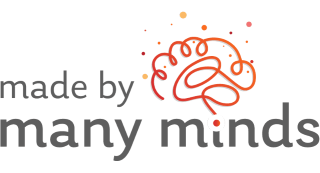What is a bookkeeper?
A bookkeeper records and maintains a business’s financial transactions. They keep track of things such as purchases, expenses, sales revenue, invoices, and payments. They will record financial data into general ledgers, and produce balance sheets and income statements.
When do you need a bookkeeper?
Using a bookkeeping can help free up time for you to run your business. Here are some signs that it could be good to look for a bookkeeper.
- Doing the books is taking up too much time.
- Your business transactions have increased, or your tax is getting complicated.
- You’re not sure that records are being kept correctly.
- Your accountant is doing bookkeeping duties but charging accountant fees.
Benefits of using a registered bookkeeper
Saving money
Hiring a bookkeeper is an unnecessary expense. But most small business owners don’t have the skills to prepare financial reports.
Instead of using an accountant, it may be cheaper to employ a registered bookkeeper to prepare your reports.
Saving time
Time is valuable for small business owners. Hiring a bookkeeper frees up your time to focus on other areas of your business.
Accurate record keeping
A bookkeeper’s main responsibility is to maintain accurate records. Since this is their area of expertise, you can trust that your records will be up to date and accurate.
Confidence and compliance
A quality registered bookkeeper will:
- understand the compliance requirements of your business
- record and lodge compliance requirements appropriately
- use the most up-to-date, effective and efficient systems available
- provide quality business reports to help with decisions about your business.
Questions to ask a bookkeeper
It’s important to get the right bookkeeper for your business. Here are some questions that can help you decide on choosing the right bookkeeper:
What are your qualifications?
Your bookkeeper should have a bookkeeping qualification. If you want them to prepare your Business Activity Statement (BAS), they’ll also need to be either a registered BAS agent or tax agent.
What bookkeeping associations are you a member of?
Members of bookkeeping associations are usually up-to-date with the latest changes in accounting, bookkeeping or tax that may impact your business.
How long have you been working and how long has the business been operating?
Find out how much experience they have, and if their business can manage your needs.
Are you familiar with the accounting software package I use in my business?
Your bookkeeper must know how to use your accounting software.
Check to see if the bookkeeper has one of the following certificates:
- MYOB Certified Consultant
- QuickBooks Certified ProAdvisor
- Reckon Certified Advisor
- Xero Advisor Certified
What kind of clients do you work with?
Find out if they have clients like you, and experience in the services you need. You could ask to speak with a current client to check if they’re happy with the service provided.
What range of services do you provide?
Many bookkeepers also provide technology support, such as help in setting up point of sale (POS) systems.
How can you me develop my business?
Good bookkeepers can assist with a range of ways to improve the overall performance of your business, such as setting and monitoring budgets.
What rates do you charge and how will I be billed?
Using a bookkeeper means you should have significant savings on your accounting fees.
Further information
- This learning resource is based on the Business Victoria article Find A Bookkeeper.
- For more information about bookkeeping, see the Business Victoria article Understand Basic Bookkeeping Principles.
- Check the Institute of Certified Bookkeepers website to get the best bookkeeper for your needs.



